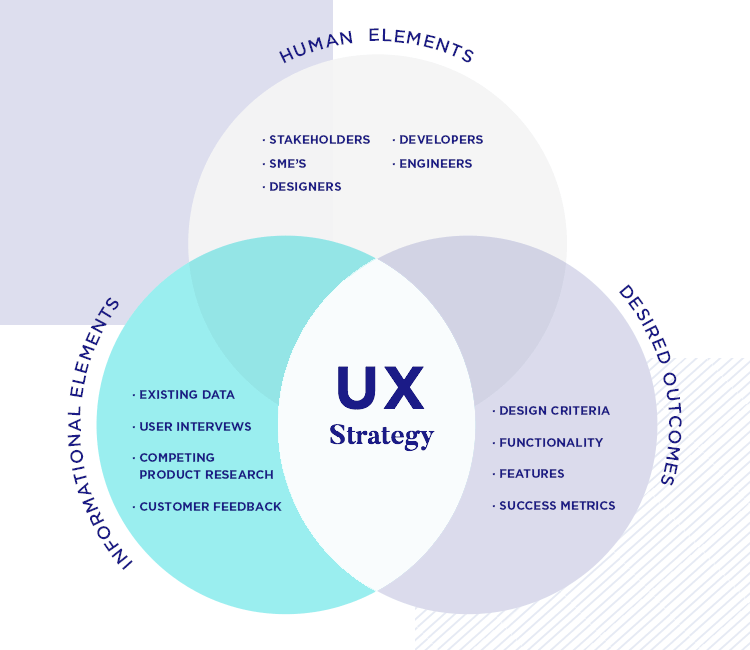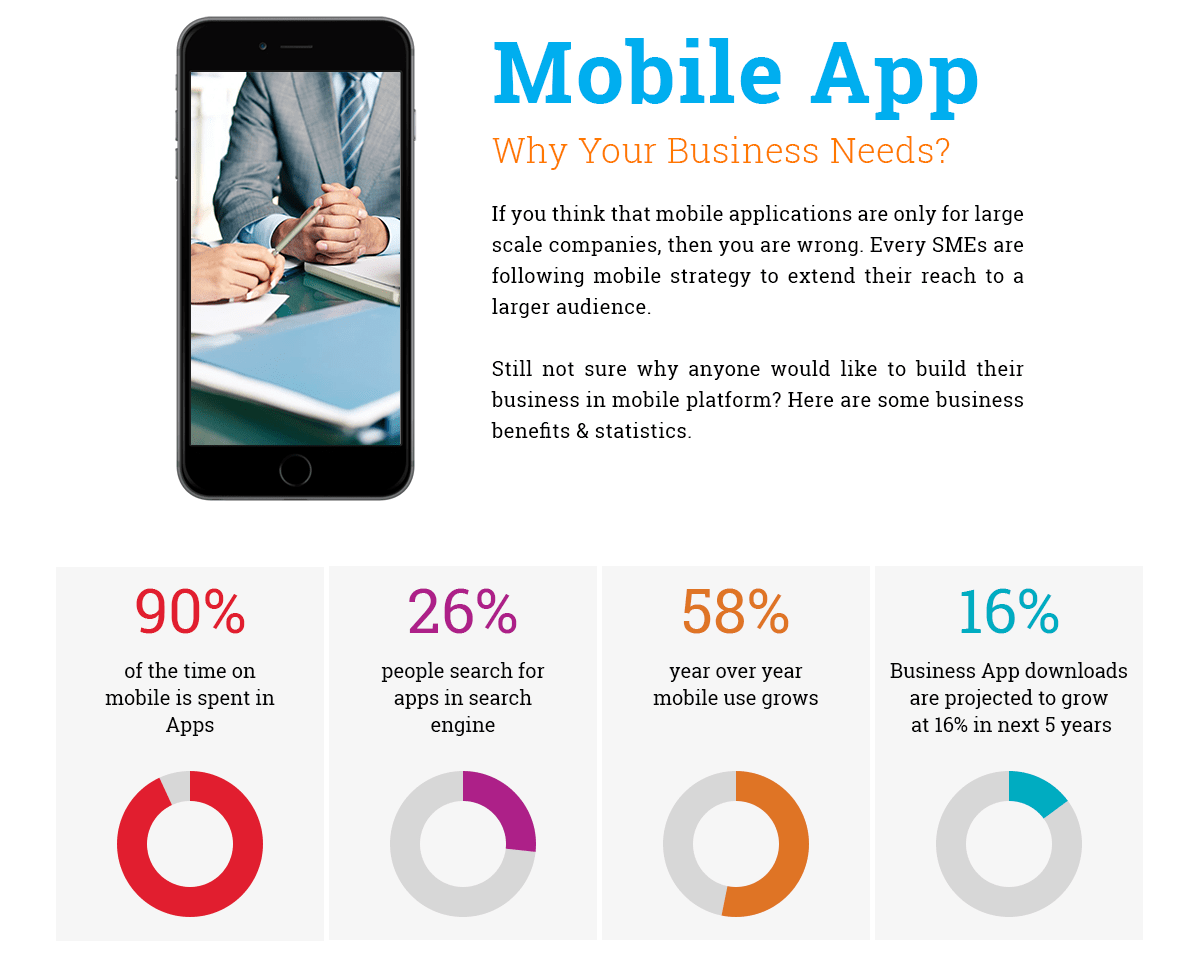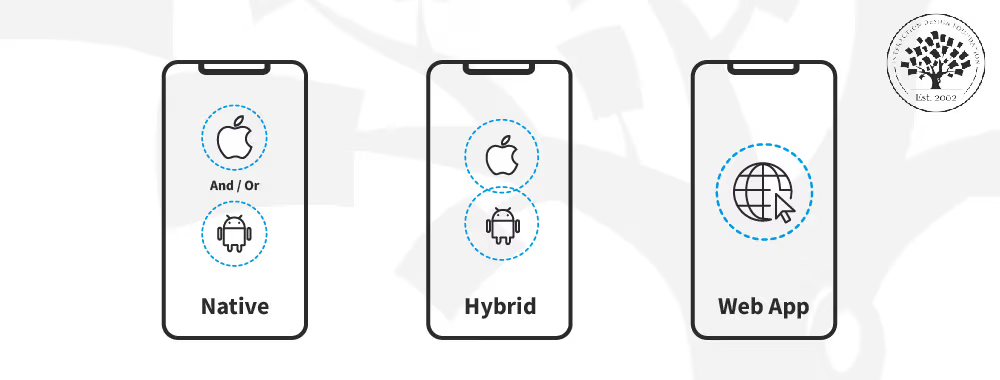In today’s digital ecosystem, businesses are constantly faced with the question: Which type of app is best for my organization—native, hybrid, or cloud-based? Each approach has its own advantages, limitations, and use cases. At Singleclic, a leading IT solutions provider since 2013, we help enterprises across the Arab world and beyond select and build the right application strategy to accelerate digital transformation.
👉 Looking for a deeper dive into enterprise app development? Check our full guide on Enterprise Web & Mobile Application Development.
What Are Native Apps?
Native apps are applications built specifically for one platform (iOS or Android) using platform-specific programming languages such as Swift, Objective-C, Kotlin, or Java.
Advantages of Native Apps
- High performance: Optimized for speed and smooth user experience.
- Full access to device features: Camera, GPS, notifications, and sensors.
- Better offline capability: Many functions run without internet connectivity.
Limitations of Native Apps
- Higher cost: Requires separate development for each platform.
- Longer development cycles: Building two apps means double the work.
What Are Hybrid Apps?
Hybrid apps combine web technologies (HTML, CSS, JavaScript) with native wrappers, enabling them to run on multiple platforms with a single codebase. Popular frameworks include React Native, Flutter, and Ionic.
Advantages of Hybrid Apps
- Cross-platform: One codebase for iOS and Android.
- Cost-effective: Faster development and reduced costs.
- Easier updates: Changes apply across all platforms simultaneously.
Limitations of Hybrid Apps
- Performance trade-offs: May not match native apps in speed and responsiveness.
- Limited access to device features: Some native integrations require additional plugins.
What Are Cloud-Based Apps?
Cloud-based apps rely on cloud servers for storage, computing power, and data processing. These apps can run on web browsers or lightweight frontends while most of the workload is handled in the cloud.
Advantages of Cloud-Based Apps
- Scalability: Instantly scale up or down based on user demand.
- Lower device dependency: Minimal installation required, runs smoothly on all devices.
- Data synchronization: Real-time access to data across multiple devices.
Limitations of Cloud-Based Apps
- Requires internet connectivity: Offline performance is limited.
- Security concerns: Relies on secure cloud infrastructure and compliance standards.
Native vs Hybrid vs Cloud-Based: A Side-by-Side Comparison
| Feature | Native Apps | Hybrid Apps | Cloud-Based Apps |
|---|---|---|---|
| Performance | Excellent | Moderate | Depends on internet |
| Development Cost | High | Moderate | Low to moderate |
| Device Access | Full | Partial | Limited |
| Scalability | Medium | Medium | High |
| Best For | Gaming, AR, UX-rich apps | SMEs, MVPs, startups | Enterprises, data-driven apps |
People Also Ask
What is the difference between native and hybrid apps?
Native apps are built for a single platform with maximum performance and device integration. Hybrid apps, meanwhile, use a single codebase to run on multiple platforms, making them cheaper and faster to build but with some performance trade-offs.
What are the three types of apps?
The three main types are native apps, hybrid apps, and cloud-based apps. Each is suited for different business needs depending on performance, scalability, and budget.
Is Netflix a hybrid app?
Netflix is primarily considered a native app with heavy cloud integration for streaming, combining the best of both worlds.
Is Instagram a hybrid or native app?
Instagram is a native app, built specifically for iOS and Android, optimized for high performance and device integration.
Final Thoughts
Choosing between native, hybrid, and cloud-based apps depends on your organization’s goals, budget, and technical requirements. Native apps excel in performance and user experience, hybrid apps offer cost-effective cross-platform solutions, and cloud-based apps provide unmatched scalability and flexibility.
At Singleclic, we specialize in delivering tailored application development strategies—whether native, hybrid, or cloud-native—to help your business stay ahead in today’s digital world.
📞 Contact us today:
- Egypt: +2 010 259 99225
- UAE: +971 42 475421
- KSA: +966 58 1106563
🌐 Visit our website







